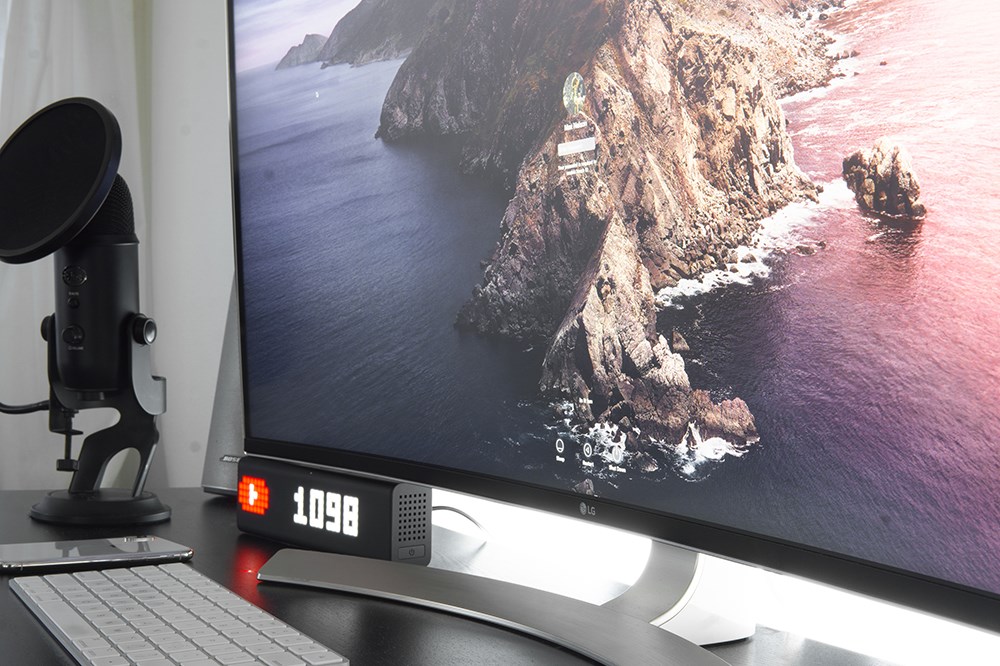How to Increase the FPS on Your Webcam

The current world of technology is all about cameras. Even as smartphones continue to evolve and become faster, more feature-filled, and better looking and all, in the era of Instagram, it usually comes down to how good the camera is. When it comes to video recording, there is nothing more important than FPS or frames per second. The higher the framerate, the more seamlessly the video will play. If the FPS of a camera is low, things will look noticeably sketchy and jumpy.
The framerate on any camera device may be set in stone, but what you may not know is that the FPS on a computer webcam can be increased. Many things in your PC affect the effective rate. Here is how to increase your webcam’s FPS (or FPM if you will on a minute basis, the difference is a factor of 60s/m).
Disk Defragmentation
Your webcam may be performing perfectly, but if your computer is laggy and your disk fragmented, the drop in FPS will become obvious. A disk defragmentation is likely in order. You can perform disk defrag by opening the start bar, going to Control Panel, and opening Administrative Tools. Here, you can find the Defragment option that you’ll need to click. Defragment the disk or partition where Windows resides, as this can help increase your FPS tremendously.
Naturally, you need to realize that boosting your PC’s performance can only help so much. Even if you buy a brand-new top-notch gaming computer, the built-in webcam has a limit of its own. If nothing on this list helps, consider buying a new camera.

Picture Brightness
You may not think it, but increasing brightness can, in fact, help your framerate. The darker the image, the likelier for the framerate to drop. Increasing the brightness, however, is easy.
Lighting
We all know that lighting plays an essential role in photography and videography in general, but aesthetics isn’t the only factor here. Try recording a video at night on your phone. The drops in frame rate will become obvious regardless of how good the built-in camera is.
Here’s what to do: position your light source so that it increases the amount of light within the viewing range of your camera. The source itself, however, is best kept out of range.

Focus
Your webcam’s focus should compensate for the light source you’ve just set up. Adjust it properly, if possible (usually, this is done by rotating the piece that holds the lens).
Test It
Test the effects of your tweaks by opening whatever viewing program you’re using and paying attention to the captured image. Move the webcam around for the best result. The image will likely be notably smoother than before, meaning that your FPS has increased.
Graphics Hardware Acceleration
If you’ve ever played video games, you know how important the graphics card is. The more hardware-demanding a game is, the better a graphics card you’re going to need to prevent any drops in framerate. However, improper hardware acceleration settings may cause many problems, including corrupt images, especially when it comes to videos. This means that disabling the graphics hardware acceleration may actually boost your FPS.
To reduce or completely turn off graphics acceleration:
- Open the Start menu and go to Control Panel.
- From there, you should find the Appearance and Personalization tool in the displayed list.
- Go to the Personalization tab and click Display Settings.
- Go to Advanced Settings. In the menu that comes up, you’ll see the Hardware Acceleration Move it to the left, either completely turning it off, or just dialing it down. Try doing it in increments at first, to see if it’s working at all. Now, press Apply.
Download the Latest Drivers
Even the best graphics cards will require updates at times. If these updates don’t install properly for some reason, this may result in video frame drops. You could always try downloading new drivers from your graphics card’s manufacturer’s official website. This process is fairly quick and might help you curb your FPS problem.
Just to be safe, it is recommended to download the latest drivers for your other components as well. Your processor, as well as your motherboard, maybe the culprit behind the frame drops that you are experiencing. In any event, even if it doesn’t help, it wouldn’t hurt to update the drivers.
Consider Buying a New Webcam
If none of the solutions above worked, it all comes down to your webcam itself. It may be broken or outdated and may be due for an upgrade. Fortunately, there are many excellent webcam models available on the market.
Smooth Video
There is nothing better than a smooth video experience and nothing worse than a grainy one. The frames per second rating plays an essential role here. Try these solutions for a great time making videos with your webcam, some are bound to work.
Have you tried these solutions? Do you know of a better solution? Let us know in the comments section and feel free to share your own experience.

















3 thoughts on “How to Increase the FPS on Your Webcam”